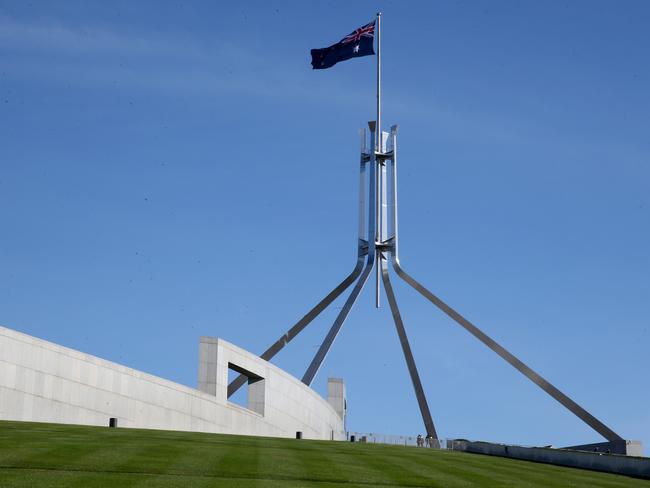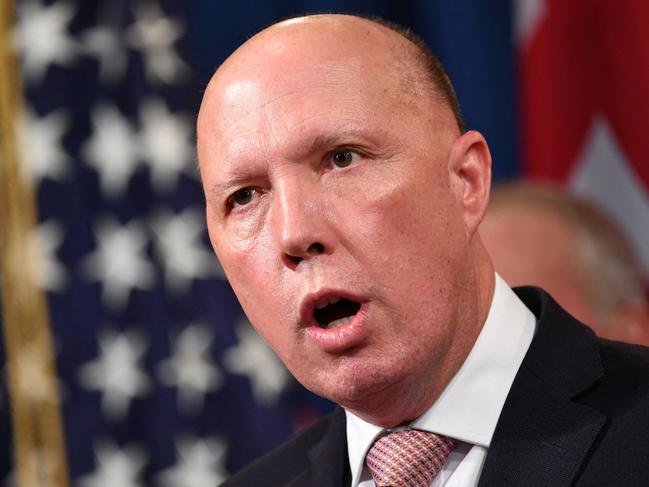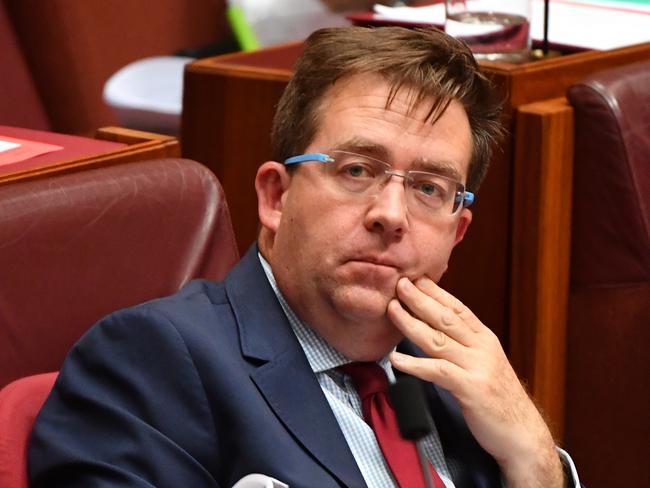Australian government should be determined by merit, not factional deals
Years ago winning a seat in Parliament meant being the best and brightest. Today it’s all about factional timeservers and recycled MPs.
Peta Credlin
Don't miss out on the headlines from Peta Credlin. Followed categories will be added to My News.
Right now, at this time in the election cycle with the next federal campaign less than 12 months away, the selection of candidates by the major parties are being finalised.
For all the talk about greater diversity in our parliament, this is the pointy end of the spear – get it right at the grassroots, and you’ll get it right in Canberra.
And the converse is true too; abuse democratic processes locally and you will pay a heavy price down the track.
To get good government in this country, we first need good MPs because every minister has to be a member of parliament.
That’s why political party preselections matter; because that’s the process by which the Liberal and National parties on the one hand, and Labor on the other, determine who should be candidates for parliament.

Given the events of the past few months, the demand is for more women MPs, with under a third of the House of Representatives membership female (29.8 per cent out of 151 seats, even though women are more than half the Australian electorate. For all the criticism, the Coalition, at 33.8 per cent, is only marginally behind Labor at 41.2 per cent which has a forced system of gender-based quotas.
Rather than illiberal and undemocratic quotas favoured by the left of politics, I have always argued a system that helps women navigate the preselection process into office, particularly via a safer seat, is the best way to increase women in our parliament.
As someone who believes in the individual against the collective, quotas are an anathema; once we divide people by their sex, believe me, it won’t be long before we have seats set aside in the parliament based on race, gender, disability and more.

At present, first championed by PM Abbott and backed in by PM Turnbull, the Liberals have a target of 50/50 men and women in federal parliament by 2025.
But to actually work, a target must have ‘teeth’; meaning it has to be backed up with a framework to drive outcomes.
In the UK, the Conservatives established a process to find and vet women candidates and equip them with the skills to run.
In 2018, for a book updating Menzies’ ‘Forgotten People’ creed for modern times, I wrote a chapter going one step further, arguing that given it’s state Liberal machines that hold the power (and the factional clout), a new national body was needed to drive the preselection of women, to report progress transparently and publicly, and to hold the broader Liberal Party organisation to account.
In 1942, when he championed women to be elected to parliament, Menzies used the term ‘qualified women’ and I use that term too.
Just installing a woman in a seat, like a business leader or a union official, is no guarantee of success.
A dud is a dud regardless of gender and there have been plenty of them on both sides of politics – male and female.
But a qualified candidate is just that, and a qualified candidate is your best chance to win and it’s also the best chance the Australian people have to get better governments in time.
Which brings me today.

By comparison with the lions of the Hawke and Howard government ministries, today’s front-benches, on both sides, look second rate at best and it’s hard to think of anyone who’s driving an agenda rather than just ‘minding the shop’; last week’s decision by defence minister Peter Dutton to overrule the defence chief on unit citations underscores this point as a rare example of an elected politician prepared to have a go.
Factional timeservers, and recycled MPs versus merit and real-world experience; it’s being played out in preselection battles across the country.
Take the upcoming preselection for the Queensland LNP next weekend that’s pitting assistant attorney-general Amanda Stoker against former Turnbull acolyte James McGrath for the only sure position on the senate ticket. McGrath is an able campaigner but Stoker is the real deal with an outstanding career in the law before politics and as the daughter of a Western Sydney plumber, precisely the sort of MP able to attract the disenchanted working class Labor voter to help Scott Morrison hold on. If the Liberals really are a party of merit, it should be a no-brainer to pick the ministerial woman, but the labyrinth of factional deals at play makes the outcome far from certain – and therein lies the biggest problem facing politics today.

Years ago, when a winnable seat was up, it was a battle of the best and the brightest. A case in point - the NSW seat of Warringah back in 1994, with a field in the double figures including of course the future PM, but also two others that went on to become MPs, plus a future Supreme Court judge and a future chairman of Macquarie Bank.
And it was anyone’s race with factions all but non-existent. Sadly, not so today.
The focus on women and quotas obscures the most critical ingredient to our nation’s democratic success – that the best candidates run because that’s how we get good government. Rather than a narrow focus on gender, ending factional stitch-ups will give Australia a better and more courageous polity as a result and on this we should all be agreed.
Watch Peta Credlin on Sky News, weeknights at 6pm
More Coverage
Originally published as Australian government should be determined by merit, not factional deals





